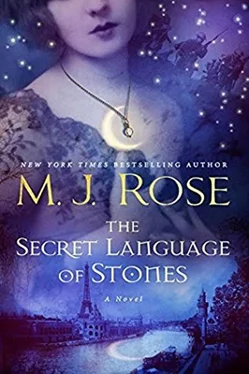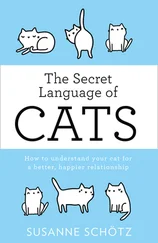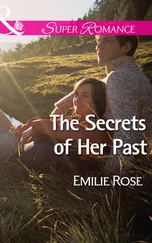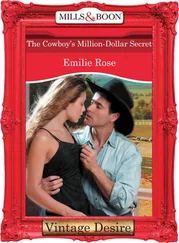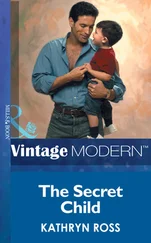By the middle of July, there was still no end in sight.
That warm afternoon, while the rain drizzled down, I steeled myself for the expression of grief to match what I’d heard in the customer’s voice. I shut off my soldering machine and put my work aside before I looked up.
Turning soldiers’ wristwatches into trench watches is how I have been contributing to the war effort since arriving in Paris three years ago. History repeats itself, they say, and in my case it’s true. In 1894, my mother ran away from her first husband in New York City and came to Paris. And twenty-one years later, I ran away from my mother in Cannes and came to Paris.
In trying to protect me from the encroaching war and to distract me from the malaise I’d been suffering since my closest friend had been killed, my parents decided to send me to America. No amount of protest, tantrums, bargaining, or begging would change their minds. They were shipping me off to live with family in Boston and to study at Radcliffe, where my uncle taught history.
At ten AM on Wednesday, February 11, 1915 my parents and I arrived at the dock in Cherbourg. French ocean liners had all been acquisitioned for the war, so I was booked on the USMS New York to travel across the sea. A frenetic scene greeted me. Most of the travelers were leaving France out of fear, and the atmosphere was thick with sadness and worry. Faces were drawn, eyes red with crying, as we prepared to board the big hulking ship waiting to transport us away from the terrible war that claimed more and more lives every day.
While my father arranged for a porter to carry my trunk, my mother handed me a last-minute gift, a book from the feel of it, then took me in her arms to kiss me good-bye. I breathed in her familiar scent, knowing it might be a long time until I smelled that particular mixture of L’Etoile’s Rouge perfume and the Roger et Gallet poudre de riz she always used to dust her face and décolletage. As she held me and pressed her crimson-stained lips to my cheek, I reached up behind her and carefully unhooked one of the half dozen ropes of cabochon ruby beads slung around her neck.
I let the necklace slip inside my glove, the stones warm as they slid down and settled into my cupped palm.
My mother often told me the story about how, in Paris in 1894, soon after she’d arrived and they’d met, my father helped her secretly pawn some of her grandmother’s treasures to buy art supplies so she could attend École des Beaux-Arts.
Knowing I too might need extra money, I decided to avail myself of some insurance. My mother owned so many strands of those blood-red beads, certainly my transgression would go unnoticed for a long time.
Disentangling herself, my mother dabbed at her eyes with a black handkerchief trimmed in red lace. Like the rubies she always wore, her handkerchiefs were one of her trademarks. Her many eccentricities exacerbated the legends swirling around “La Belle Lune,” as the press called her.
“ Mon chou , I will miss you. Write often and don’t get into trouble. It’s one thing to break my rules, but listen to your aunt Laura. All right?”
When my father’s turn came, he took me in his arms and exacted another kind of promise. “You will stay safe, yes?” He let go, but only for a moment before pulling me back to plant another kiss on the top of my head and add a coda to his good-bye. “Stay safe,” he repeated, “and please, forgive yourself for what happened with Timur. You couldn’t know what the future would bring. Enjoy your adventure, chérie .”
I nodded as tears tickled my eyes. Always sensitive to me, my father knew how much my guilt weighed on me. My charming and handsome papa always found just the right words to say to me to make me feel special. I didn’t care that I was about to deceive my mother, but I hated that I was going to disappoint my father.
During the winters of 1913 and 1914, my parents’ friends’ son Timur Orloff lived with us in Cannes. He ran a small boutique inside the Carlton Hotel, where, in high season, the hotel rented out space to a select few high-end retailers in order to cater to the celebrities, royalty, and nobility who flocked to the Riviera.
Our families first met when Anna Orloff bought one of my mother’s paintings, and Monsieur Orloff hired my father to design his jewelry store in Paris. A friendship developed that eventually led to my parents offering to house Timur. We quickly became the best of friends, sharing a passion for art and a love of design.
Creating jewelry had been my obsession ever since I’d found my first piece of emerald sea glass at the beach and tried to use string and glue to fashion it into a ring. My father declared jewelry design the perfect profession for the child of a painter and an architect-an ideal way to marry the sense of color and light I’d inherited from my mother and the ability to visualize and design in three dimensions that I’d inherited from him.
My mother was disappointed I wasn’t following in her footsteps and studying painting but agreed jewelry design offered a fine alternative. I knew my choice appealed to the rebel in her. The field hadn’t yet welcomed women, and my mother, who had broken down quite a few barriers as a female artist and eschewed convention as much as plain white handkerchiefs, was pleased that, like her, I would be challenging the status quo.
When I’d graduated lycée , I convinced my parents to let me apprentice with a local jeweler, and Timur often stopped by Roucher’s shop at the end of the day to collect me and walk me home.
Given our ages, his twenty to my seventeen, it wasn’t surprising our closeness turned physical, and we spent many hours hiding in the shadows of the rocks on the beach as twilight deepened, kissing and exploring each other’s body. The heady intimacy was exciting. The passion, transforming. My sense of taste became exaggerated. My sense of smell became more attenuated. The stones I worked with in the shop began to shimmer with a deeper intensity, and my ability to hear their music became fine-tuned.
The changes were as frightening as they were exhilarating. As the passions increased my powers, I worried I was becoming like my mother. And yet my fear didn’t make me turn from Timur. The pleasure was too great. My attraction was fueled by curiosity rather than love. Not so for him. And even though I knew Timur was a romantic, I never guessed at the depths of what he felt.
War broke out during the summer of 1914, and in October, Timur wrote he was leaving for the front to fight for France. Just two weeks after he’d left, I received a poetic letter filled with longing.
Dearest Opaline,
We never talked about what we mean to each other before I left and I find myself in this miserable place, with so little comfort and so much uncertainty. Not the least of which is how you feel about me. I close my eyes and you are there. I think of the past two years and all my important memories include you. I imagine tomorrow’s memories and want to share those with you as well. Here where it’s bleak and barren, thoughts of you keep my heart warm. Do you love me the way I love you? No, I don’t think so, not yet… but might you? All I ask is please, don’t fall in love with anyone else while I am gone. Tell me you will wait for me, at least just to give me a chance?
I’d been made uncomfortable by his admission. Handsome and talented, he’d treated me as if I were one of the fine gems he sold. I’d enjoyed his attention and affection, but I didn’t think I was in love. Not the way I imagined love.
And so I wrote a flippant response. Teasing him the way I always did, I accused him of allowing the war to turn him into even more of a romantic. I shouldn’t have. Instead, I should have given him the promise he asked for. Once he came back, I could have set him straight. Then at least, while he remained away, he would have had hope.
Читать дальше
